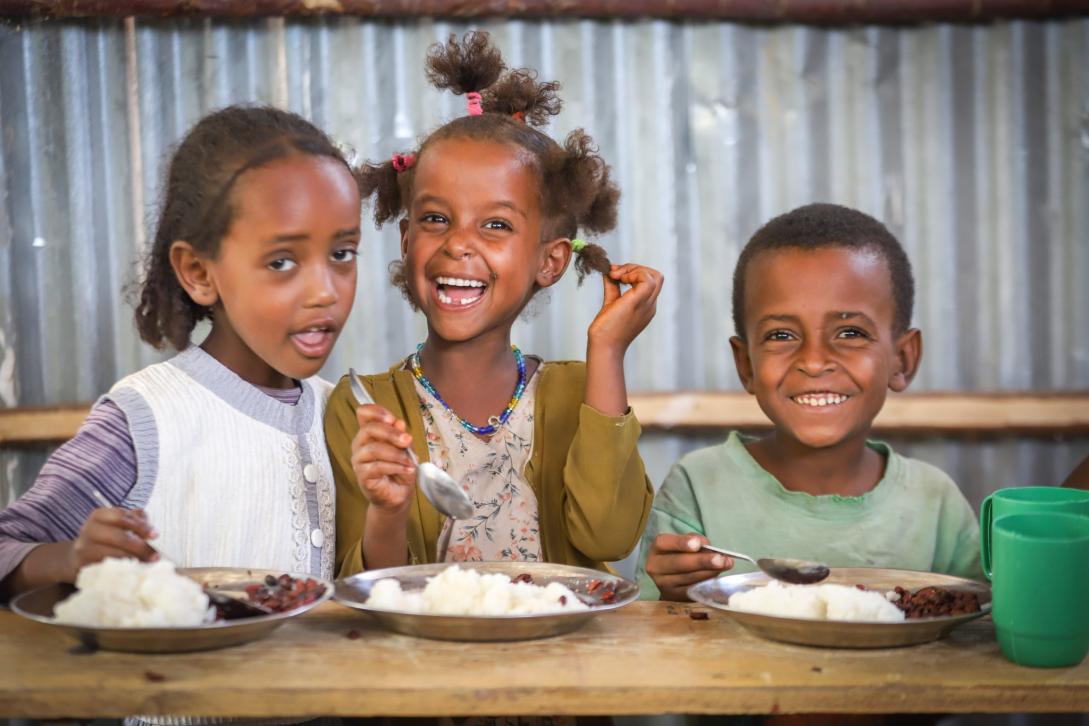Restoring Education through School Feeding in Conflict-Affected Regions

Between November 2020 and November 2022, civil war in Ethiopia’s northern regions—Tigray, Amhara, and Afar—severely disrupted the education system. Enrolment rates dropped, dropout rates increased, and many schools were damaged or destroyed. To support recovery, this project delivers a School Feeding Programme (SFP) in 123 pre-primary and primary schools: 77 in Amhara, 27 in Tigray, and 19 in Afar.
Implemented by the World Food Programme (WFP) in partnership with Regional Education Bureaus and key ministries, the SFP helps children return to school, stay enrolled, and concentrate in class by addressing hunger and basic needs. Since its launch, the programme has exceeded its enrolment target by more than 20%, demonstrating its impact after years of disruption.
The project also supports a transition from in-kind food distribution to a home-grown school feeding model—creating new market and capacity-building opportunities for smallholder farmers, traders, and local suppliers across the food value chain.
Objectives
Aligned with national strategies—including the Social Protection Policy, Food and Nutrition Policy, National Nutrition Programme, School Health and Nutrition Strategy, and Education Sector Development Programme (ESDP IV–VI)—the project aims to:
-
Improve access to education for conflict-affected children in Tigray, Amhara, and Afar.
-
Reduce dropout rates in pre-primary and primary schools, with a particular focus on girls.
-
Strengthen the transition to a sustainable, home-grown school feeding model.
-
Support local food systems by linking smallholder farmers and other value chain actors to school feeding supply chains.
Project Activities
-
Provision of daily school meals for children.
-
Formation of school feeding management committees.
-
Training for regional and woreda education officials and school feeding management committees on food handling and the management of the school feeding programme.
-
Training for cooks on food preparation and food handling.
Expected Results
-
School meals are provided to 50,000 girls and boys affected by conflict and suffering from malnutrition. The WFP exceeded its target, reaching 61,461 schoolchildren (30,975 female).
-
Training is provided to school management committees, woreda, and regional education bureaus on food handling and the management of the school feeding programme.
-
Back-to-school community mobilisation interventions are supported.


